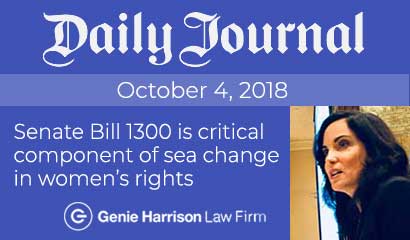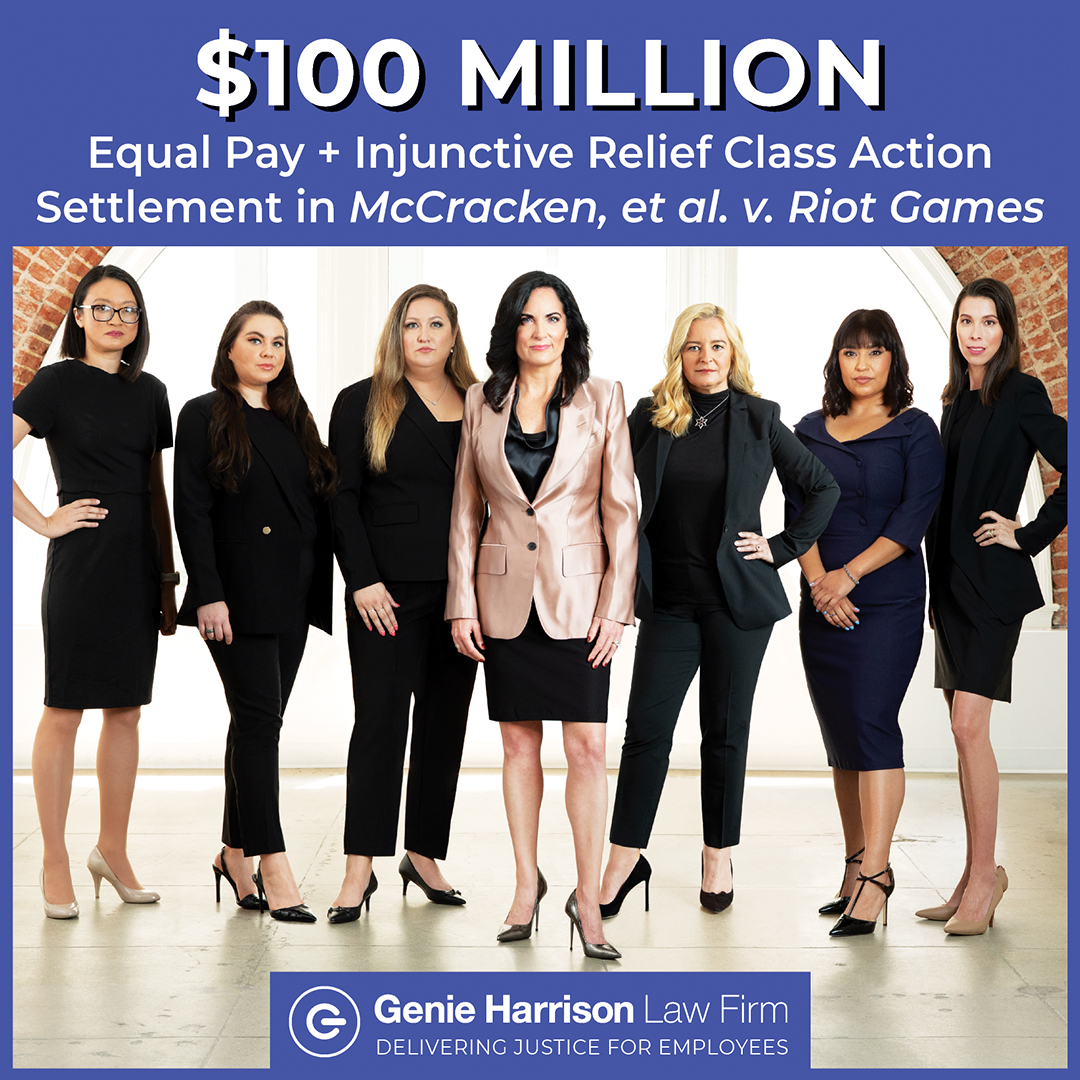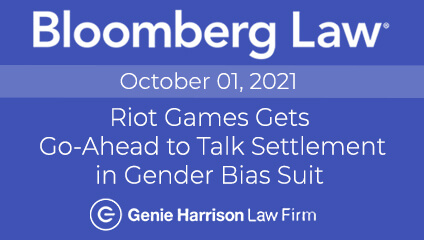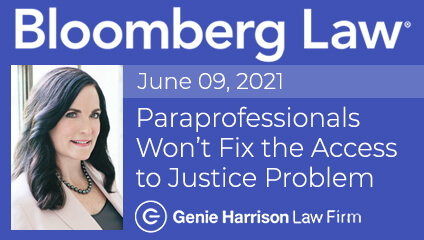Bill is critical component of sea change in women’s rights
Senate Bill 1300 finally eliminates the pass given to bad actors in the workplace that was rooted in the way the “severe or pervasive” standard hostile work environment cases was applied by the courts.
October 4, 2018 — by Genie Harrison for the Daily Journal
On the last day of September, Gov. Jerry Brown signed into law a number of bills in California’s “sexual harassment suite” of legislation spawned by the #MeToo movement. Amid the cork popping and hoopla, it is easy to overlook perhaps the most significant component of this sea change in women’s rights.
Harassment victims in California will be able to pursue claims based on a single grope, slur or other offensive act. Senate Bill 1300, the Omnibus Sexual Harassment Bill, finally eliminates the pass given to bad actors in the workplace that was rooted in the way the “severe or pervasive” standard hostile work environment cases was applied by the courts.
Government Code Section 12923, which is added as a result of the bill and takes effect Jan. 1, 2019, clarifies the Legislature’s intent regarding the application of harassment laws in the Fair Employment and Housing Act. Subsection (a) provides that “harassment creates a hostile, offensive, oppressive or intimidating work environment and deprives victims of their statutory right to work in a place free of discrimination when the harassing conduct sufficiently offends, humiliates, distresses or intrudes upon its victim, so as to disrupt the victim’s emotional tranquility in the workplace, affect the victim’s ability to perform the job as usual, or otherwise interfere with and undermine the victim’s personal sense of well-being.”
This language finally reflects what a hostile work environment actually is and how it affects victims. Compare the new language to the current standard, which provides that harassment must be “sufficiently pervasive so as to alter the conditions of employment and create an abusive working environment.” Fisher v. San Pedro Peninsula Hospital, 214 Cal. App. 3d 590, 608 (1989).
The difference between the current standard and Section 12923 may not seem like a big deal, but it is revolutionary. Judges have been granting summary judgment for a long time based on what I would argue is an incorrect belief that a single act of harassment, other than something as severe as rape, does not constitute severe or pervasive conduct. This standard has allowed harassers to engage in repeated sexual harassment as long as they “lightly’ sexually harass, do it sporadically, or target different victims.
Many courts have supported this anachronistic approach. In Brooks v. City of San Mateo, 229 F.3d 917 (9th Cir. 2000), the court held that a single encounter in which a supervisor forced his hand under the plaintiff’s sweater to fondle her breast was not frequent, severe or intense enough to interfere with working conditions and alter the terms and conditions of her employment.
There are innumerable women who have been sexually harassed and no longer feel safe at work but whose cases have been declined, by my firm and others, because of the severe or pervasive standard. These women feel unsafe, ashamed, and afraid of being targeted every time they go to work. The conduct has changed the terms and conditions of their working environment, but it has been sporadic. Although we know that a single grab or multiple offensive statements often escalate to something worse, the severe or pervasive standard did not allow cases to be brought to stop the less severe, intermittent harassment.
No more. Besides recognizing the harm done to harassment victims, Section 12923(b) reflects the experiences of victims whose work lives were forever changed by a single incident, expressly rejecting the Brooks case: “A single incident of harassing conduct is sufficient to create a triable issue regarding the existence of a hostile work environment if the harassing conduct has unreasonably interfered with the plaintiff’s work performance or created an intimidating, hostile, or offensive working environment. In that regard, the Legislature hereby declares its rejection of the United States Court of Appeals for the 9th Circuit’s opinion in Brooks v. City of San Mateo.”
The Legislature is also making clear, in Subsection (d), that “In determining whether or not a hostile environment existed, courts should only consider the nature of the workplace when engaging in or witnessing prurient conduct and commentary is integral to the performance of the job duties.”
Finally, the Legislature affirms that harassment cases need to be decided by a jury, as opposed to on summary judgment: “(e) Harassment cases are rarely appropriate for disposition on summary judgment. In that regard, the Legislature affirms the decision in Nazir v. United Airlines, Inc., 178 Cal.App.4th 243 (2009), and its observation that hostile working environment cases involve issues ‘not determinable on paper.’” I expect that few harassment cases will result in summary judgment being granted once Section 12923 is effective.
Section 12923 rightfully should end the inequity associated with the severe or pervasive standard. After all, if we want to stop harassment, why make it acceptable until an artificial line of severity or pervasiveness is crossed?
The enactment of Government Code Section 12923 is truly cause for celebration. The new standard means that harassers and their employers will no longer have a green light to commit bad acts, and victims will be able to pursue cases that historically would have been dead on arrival.
Genie Harrison, founder of the Genie Harrison Law Firm, is an employment law expert as well as the creator of Damages Genie, an app that helps plaintiffs’ attorneys quantify non-monetary damages.





